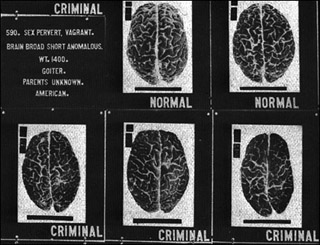
Proponents of eugenics have sought to improve the human species through compulsory sterilization of criminals, the mentally ill, and others deemed social misfits. Such links between biology and destiny were intellectually fashionable in the 1920s, when some two-thirds of Americans were said to support such measures. (Photo courtesy of the U.S. National Library of Medicine.)
Instructor(s)
Prof. Caspar Hare
Prof. David Jones
MIT Course Number
24.06J / STS.006J
As Taught In
Spring 2009
Level
Undergraduate
Course Description
Course Features
Course Description
This course does not seek to provide answers to ethical questions. Instead, the course hopes to teach students two things. First, how do you recognize ethical or moral problems in science and medicine? When something does not feel right (whether cloning, or failing to clone) — what exactly is the nature of the discomfort? What kind of tensions and conflicts exist within biomedicine? Second, how can you think productively about ethical and moral problems? What processes create them? Why do people disagree about them? How can an understanding of philosophy or history help resolve them? By the end of the course students will hopefully have sophisticated and nuanced ideas about problems in bioethics, even if they do not have comfortable answers.


